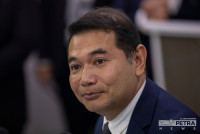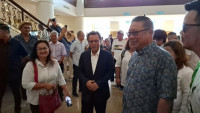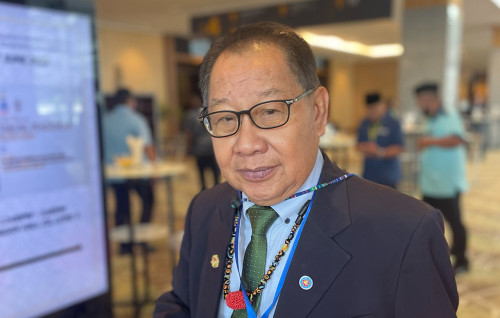THERE were very few subjects in school that held my interest, but biology was one class that I looked forward to. I loved tracing over images of the human body and its many organs onto my notebooks. I remember being fascinated by how each part within our body is interconnected to create such a beautiful living system that makes us human. I remember closing my eyes imagining how blood would flow through my body.
Its journey begins from my beating heart to the tips of my toes and then the rush to the top of my head. The wonder I felt, feeling my pulse on my wrists, made me feel human. Also, compared to the subject of additional mathematics where you count hypothetical apples and oranges, biology was about life.
I never became a doctor though. I was much more inclined to make a living being disruptive. This love for learning how living things come to be, or why we are the way we are, does give me a deep admiration and respect for those who put themselves through medical school to save lives and to heal.
This belief is also deeply influenced by my identity as an Asian living in a region so deeply rooted in our beliefs that healers, and those who heal, are often the revered and respected leaders of our tribes. Their wisdom is often our society’s guiding path to living a good life.
My belief was quickly shattered into pieces as I begin navigating through my adolescence and adulthood knocking on various doors of these professionals seeking help. As I got turned away one by one, the challenge of searching for one who would come to see me as a person with my own autonomy is rarer than true love on a Tinder match.
With the baggage of medical trauma and questionable ethics of some medical professionals – I developed a deep distrust and disappointment with those who purportedly made an oath to do no harm.
Dr Rowina Lynne Murray
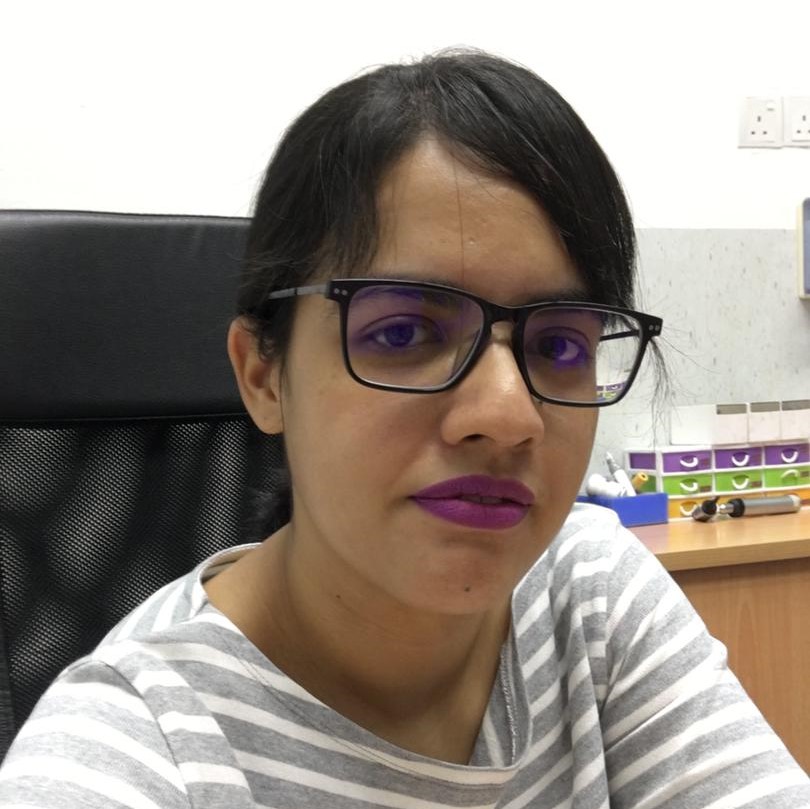
When I first learned of Dr Rowina Lynne Murray, 36, through her wildly popular Instagram account @rowinalynne where she advocates for Autism and ADHD from the perspective of someone who was diagnosed with both conditions later in life; I had to reach out.
A Malaysian medical doctor that is autistic and with ADHD, she must have some insights for me to understand where my doctors had erred. Rowina is also an active member of Cogniversity Malaysia, a social enterprise running educational content for the neurodivergent adults in Malaysia.
In one of her talks, Dr Rowina shared a quote from a US based psychiatrist, Dr Daniel Amen, that struck a deep chord in me. It says, “When the pressure is on, there lies in all of us the temptation to compromise for being average and to live a life of mediocrity…”.
Women like us often find ourselves caught somewhere between our aspirations and our achievements. Our path to our goals often takes on a meandering route, rather than the intuitive and typical ability to simply get from point A to B with no detours.
Being undiagnosed in our formative years, we became unmoored from our core sense of self, leaving many of us stumbling and fumbling our way through the transition from adolescent to adulthood; often at the expanse of being left with no choice but taking the mediocre path because survival trumps burning out.
As Rowina recounts her own path to getting her diagnosis of being autistic and ADHD, she laments over the years lost in believing she had severe anxiety, being called lazy and being seen as an under-achiever. The lasting impact of wondering all those years if others could do it, why was it so difficult for her?
Like me, she said she always felt different as a child and recalls having difficulties in completing tasks that most would find easy as well as maintaining rigid hygiene expectations.
Having control over her schedule and benefitting from a structured system of being in school had also contributed to her finding a way to cope. Though she knew she needed more rest than most after a full day in school, the security of that routine, with a break in her schedule to recoup her energy through a nap, helped tremendously to regulate her mind and from being overwhelmed by the daily demands.
It was only when she began medical school and went into her housemanship training, the pressure to keep her head above water became debilitating. The shift from a structured schooling environment to one that is self-led and her mentorship reliability on senior medical officers and specialists’ available time, threw Rowina’s routine into a chaotic mess.
From being able to mask up and shut down momentarily to recoup her energy spent navigating the demands in her life, she found herself drowning and struggling to play catch-up. All of these came to head while completing her master’s programme. Life demands now exceeded her capacity.
Her need for a routine and consistency in her days became more pronounced later in her life. It’s laughable to her now, thinking back to when she was faced with a day off from her medical training, she was stumped in figuring out what to do. Many adult autistics share the same need for routine and rituals, as we find great comfort in its predictability, and it is a proven way to regulate our emotions and body.
Making a tough but necessary decision, Rowina left her masters programme when she hit a crisis point. It was then she began seeking assistance from a psychiatrist and was put on anti-anxiety medication to help with what was perceived as her struggles with anxiety through the symptoms she had relayed to him.
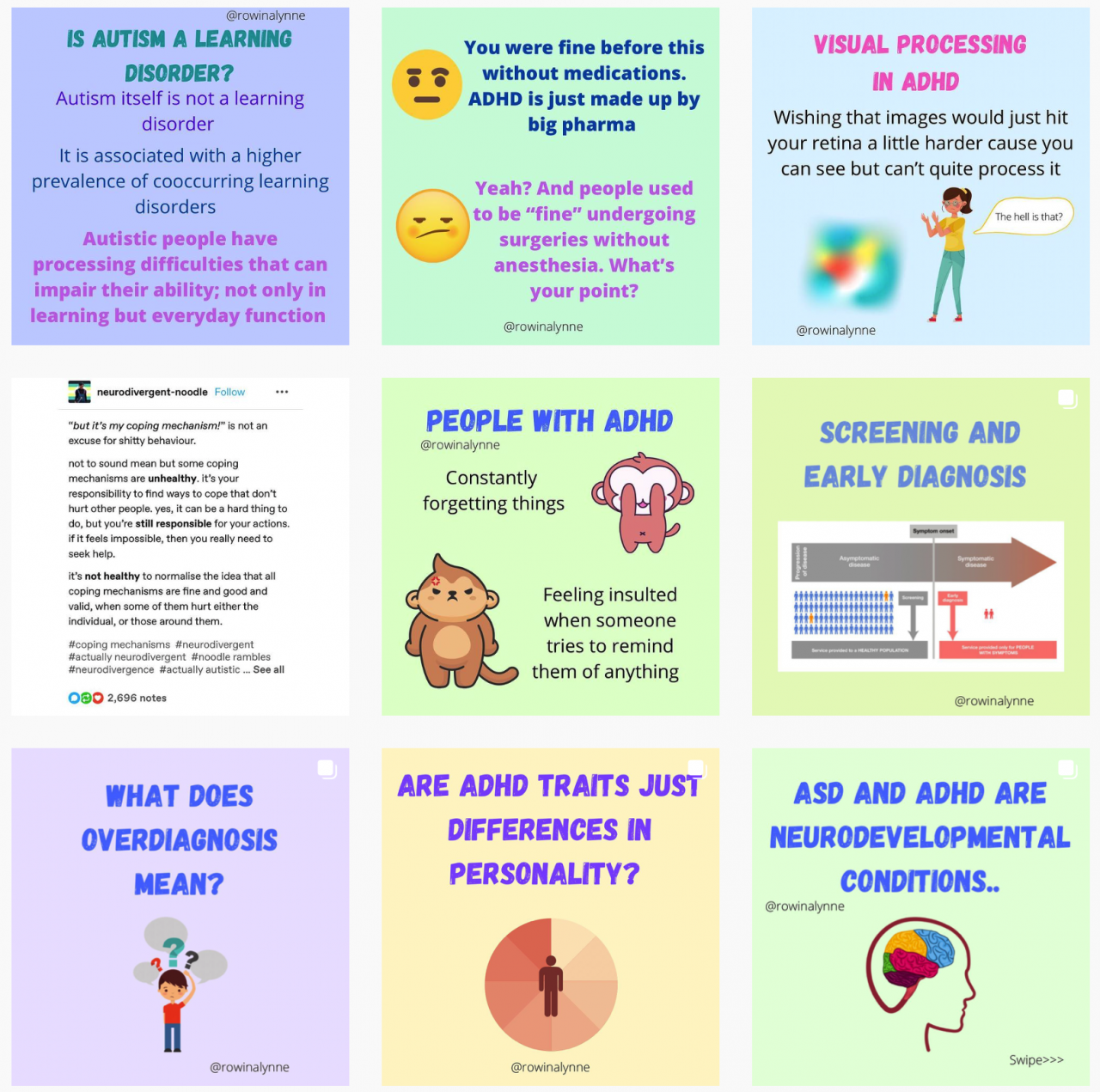
With medication, she mustered up her courage again and explored an alternative pathway to gain her needed certifications to practice in her chosen speciality. While she succeeded in completing it, it didn’t take long before she had another burnout as she was not responding to the medication prescribed.
It took a few more years and more visits to different psychiatrists before one finally investigated her childhood history. She was finally diagnosed with ADHD and put on the right medication. Rowina was subsequently diagnosed with ASD when she began exploring more into the traits that were not explained with just ADHD.
It took her a while to accept her diagnosis. It shook her confidence as even being a senior medical officer herself, she was unaware that one could be diagnosed this late in life. She was perplexed that her training and education in medical school did not prepare her for this.
While she had often tried to self-diagnose, to explain why she felt the way she did, it had not occurred to her to look down this path. She had the misconception that ASD and ADHD are conditions one would overcome post-childhood.
There remains a lack of awareness and understanding of autism and ADHD. Most assume that these diagnoses would become a hindrance to one performing their professional duties. Unemployment rate for autistics remains high and many struggle to retain employment.
While Rowina’s autism does not present with intellectual disability thus enabling her to gain her education typically and carve a career in medicine, she is aware that she does not have any protection in laws and policies to safeguard her in her employment.
Should it become contentious that her autism and ADHD is viewed as a deficit and disability, she is at risk. She remains hopeful that her advocacy to educate through her voice would change this perception.
Dr Cheah Boon Eu
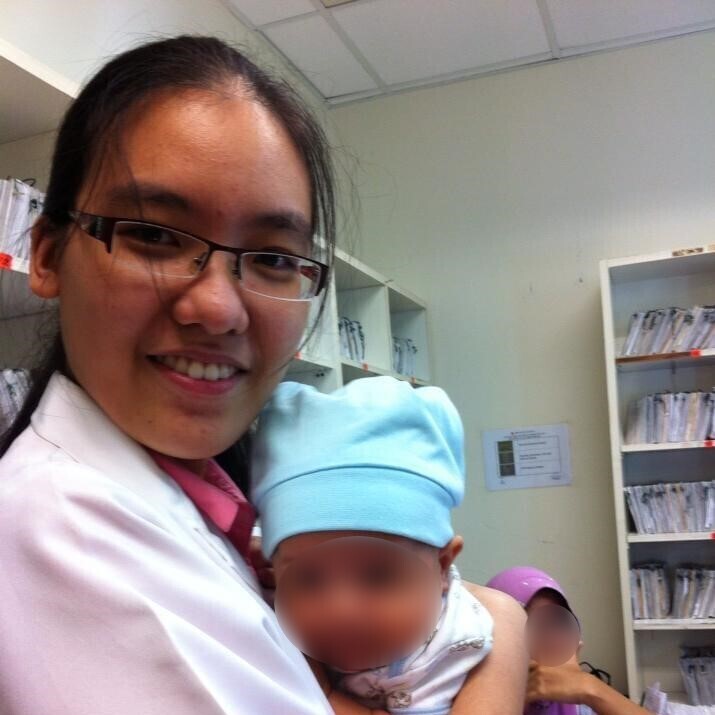
This situation Rowina is in, is the foundation why Dr Cheah Boon Eu, 37 another practising medical officer in Penang, remains guarded and careful with disclosing her diagnosis. She was formally diagnosed with Irlen Syndrome and Dyslexia, after years of struggles in sitting for multiple exams for medical school. She realised she was autistic through suggestions by several different medical professionals who had been her colleagues as well as psychiatric consultations of her own.
Boon Eu began her career in medicine within the Paediatrics department. It is a given that any medical officer is well versed with the DSM-V and its textbook definition of autism. She recalls that her early understanding of autism was of its repetitive behaviours, social communication problems and poor eye contact.
It was only through her posting in paediatrics that she began to understand that these definitions are mostly superficial and does not consider an autistic person with co-occurring sensory processing issues, thus their manifestation in behaviours that the public perceive as disruptive and challenging is often misunderstood.
She also acknowledges that very few medical professionals could tell you what autism is in detail. At the current moment, it is often only diagnosed by those who are trained in paediatrics, hence adults who have slipped through the system may find it more challenging to seek a diagnosis.
This barrier is even more pronounced for adult women seeking a formal diagnosis. There simply aren’t any specialists who can discern between the hidden traits of autism underneath years of masking and other coping mechanisms many women have learned through their trauma response to society.
“It isn’t as if you could take a blood test and reveal yourself as autistic” says Boon Eu.
She also faces these issues head on herself. While three different professionals have put forward that her challenges were because of her ASD, none could formally diagnose her as it is not within their jurisdiction and field of expertise for now.
She also explains that diagnosing children with autism is challenging to begin with, so it is only fair to say that adults are often overlooked because there simply aren’t any available formal pathways. One must be very creative and highly discerning to formally diagnose an adult with ASD.
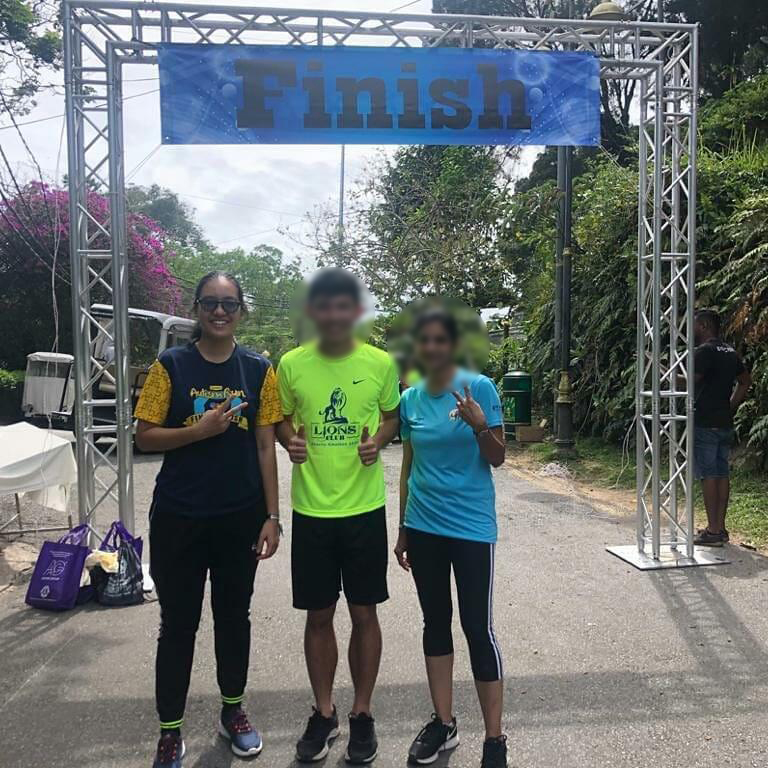
This often comes with a lot of gathering of information which could be traumatising for some adults who had broken relationships with those present in their childhood. It also takes a lot of introspection into one’s life to be able to discern which are challenges faced because of autism, and which are not.
She does believe that one should take every concern of a patient kindly and seriously, and in hopes that should a medical officer with lesser experience be “unsure of what to do”, that they seek help from the more senior medical fraternity instead of turning patients away with false reassurance.
Boon Eu is also deeply aware of the bias and discrimination our society has against autistics. This situation is not just exclusive towards those with intellectual disability challenges, but even with autistics who are independent and are educated professionals.
Boon Eu recalls an ex-colleague of hers who was a typically presenting male autistic. While she remembers him to be helpful and kind, she was disturbed by how others perceived him. While they are often polite in his presence, the discussions, and remarks of his behaviour in private was appalling.
This incident clearly showed her that true awareness and acceptance is a long path for the autistic community and made her fearful.
Boon Eu is troubled as unbeknownst to her colleagues; she also faces the same challenges. It brings forth a lot of questions within herself. Being diagnosed with dyslexia late, had already caused a deep dent in her self-esteem as she recalls feeling depressed upon learning that there was a reason for her struggles in her studies.
She was often led to believe that she was simply, stupid. She also sees where she had judged herself and her own bias towards her own learning difficulties and autism, what more of others? It took a lot of acceptance and learning to overcome this internal turmoil she had in her diagnosis journey.
Boon Eu is now pursuing her Master in Psychology to deepen her understanding in this field and as her way of making changes within her profession to be kinder to people who share the challenges as she does.
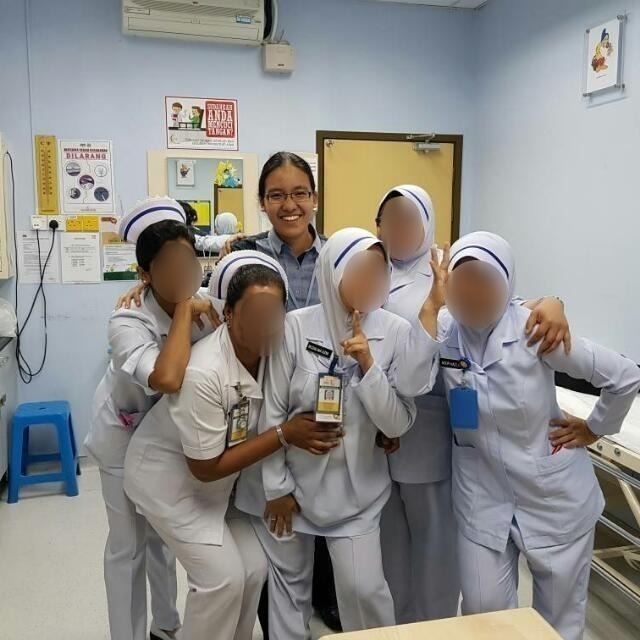
For most autistics, our social circle is small, and often frail. To be open and upfront about our autistic challenges can sometimes be daunting. In being vulnerable with our diagnosis and our fight for it to be taken seriously, the community is also vulnerable to discrimination and being further alienated.
The question of competency in our work, our words, and our stories, will often hang above our head. Who will protect our rights to be who we are?
As I learn more about being autistic, my mental health and these lost girls I speak to, I see now how disconnected we are in matters of our mind and body. Medical textbook definitions don’t often apply against one’s lived experience. I see medical professionals may also have questions themselves that need answering.
In the field of medicine and neuroscience, autism sits in a position where the complex interrelationship between our minds and bodies is so unique yet so little is being understood of it.
Learning through Rowina and Boon Eu, I am also cognisant that the barriers between patient and doctor communication may not be so black and white after all. Perhaps it’s time medical professionals look beyond their textbooks and the DSM-V, and to see patients as a person with lived experiences. Rowina and Boon Eu’s stories are testament that you can be beyond your diagnosis and labels. – The Vibes, April 9, 2022
Beatrice Leong is a documentary filmmaker and entrepreneur attached to a health tech startup initiative
Autism Spectrum Disorder (ASD) is a complex developmental condition which involves persistent challenges with social communication, restrictive interest and repetitive behaviours.
There is a persistent misunderstanding that autism is rare in women as female presentations are often much more nuanced and their ability to 'mask' to fit in with their peers, often only manifest in mental health challenges and crises later in their lives.
This month’s series on women with ASD, often known as 'The Lost Girls' by Beatrice, highlights new narratives and perspectives of autism from the inside. Read part 1 here.



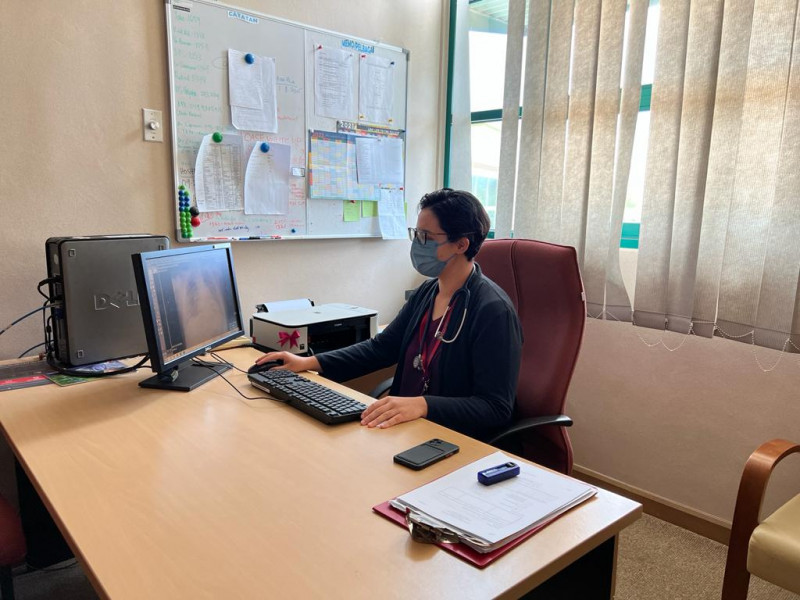
_and_Mariammah_Krishnan_(right._back-row__far_left).png)
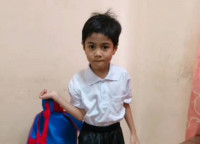
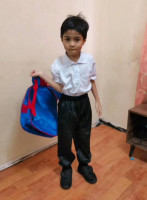
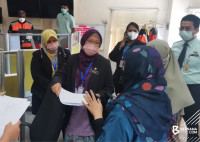
_-_SYEDA_IMRAN_-_26.jpg)


